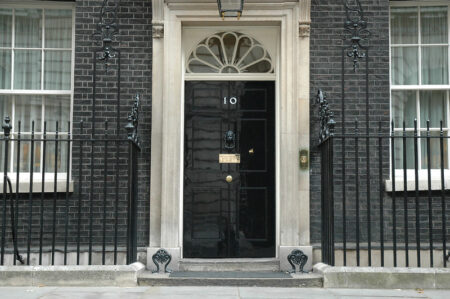Industry awaits news on future of healthcare following Labour victory

Image, www.number10.gov.uk
The Labour Party won a landslide victory in yesterday’s General Election, usurping the Conservatives and heralding a new era in UK politics.
Appearing before crowds of supporters in the capital today, Labour leader, Sir Keir Starmer, announced that ‘change begins now’.
And voters will undoubtedly be waiting to hear how the new shift in power will impact on the beleaguered UK healthcare system.
From the point of view of the estate, in particular, the party will need to ensure a hefty increase in capital funding if it is to deal with pressing issues such as the RAAC crisis and the crippling NHS backlog maintenance challenge.
Siva Anandaciva, chief policy analyst at the King’s Fund health think tank, said: “The next six months will bring significant challenges and choices in almost every area of focus for the next Secretary of State for Health and Social Care.
“Restraint in public finances will meet calls to turbo-charge hospital building programmes and increase day-to-day spending on staff.
“So, although the manifestos were not silent on NHS funding, even after all the promises and commitments, some big questions remain – for now – unanswered.”
Sarah Woolnough, King’s Fund chief executive, added: “One part of Labour’s health and care plan is an aspiration to move more care out of hospital and closer to communities.
“Refocusing the NHS towards primary and community care would lead to a more-efficient and sustainable health care system, but this has been the stated policy aim of successive governments over several decades and has not been realised because ministers have not put their money where their mouth is.
“If Labour really wants to come good on this promise and avoid repeating history, it must be more than warm words; they will need to take some tough decisions on where funding, staff, and political energy are directed.”
But Mark Dayan of the Nuffield Trust warned that the need to maintain or increase investment in capital was missing from Labour’s manifesto.
He said: “Labour’s focus on scanners is well founded, as this is an area of particularly scarce provision in the UK compared to elsewhere in western Europe.
“The party has also pledged to move resources to primary and community care.
“They will need to learn from the past four years where the same policy has notionally been in place, and yet community spending has fallen per age-adjusted person.
“The obvious place to learn from is the example of mental health, where a tightly-defined and enforced requirement has raised spending hugely.
“Small pots of money each winter deliver limited results, because hiring staff, arranging buildings and changing the way people work takes time and coordination.”
According to the Health Foundation’s REAL Centre, health capital spending would need to rise from almost £13bn this year to £21bn in 2029/30 and £27bn in 2034/35 to tackle the crumbling NHS estate, add bed and diagnostic capacity, and improve IT systems.
Centre director, Anita Charlesworth, said: “The health service is in crisis and all the main political parties have said they want to fix it – yet the funding they have so far promised falls well short of the level needed to make improvements.
“Politicians need to be honest with the public about the scale of the challenge the NHS faces and the reality that an NHS fit for the future needs long-term sustainable investment.”
- Sign up to the Healthcare Property newsletter for more election news as it appears
